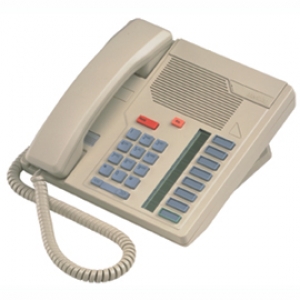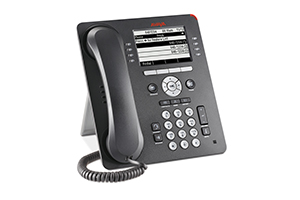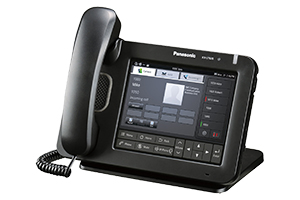Welcome to chapter 3 of our guide on how to buy office phone systems. Last week we looked into what office phone systems may be right for you, which you can find here, and this week we’ll be looking at the different options you have when purchasing an office phone system. One of the biggest decisions you’ll have to make when it comes to purchasing a new office phone system (or upgrading from an old one) is whether to go with an analog, digital or VoIP phone system. Each of these phone systems has their own benefits and downfalls, so it’s important to know what you prioritize in a phone system before you decide to make a new purchase.
Throughout this article we’ll be discussing the pro’s and con’s of each type of phone system, as well as we will discuss how each of them work to give you a better sense of which one may be the right fit for you company. If you have any additional questions afterward, feel fee to contact us at Network Telecom.
You have been forward thinkers, always keeping us up-to-date with the latest telecommunication equipment.
Chart Summary
 Analog
Analog
Pros: Inexpensive initial cost, easy to use, minimal setup, still have service during a power outage
Cons: Expensive to support/upgrade, not many features, lower sound quality
Analog is the oldest style of phone system available that still has any relevance in the telecom industry. Analog has been around for decades now and were once the standard for all phone systems. They’re built on standard copper wire and what’s called POTS (plain old telephone system).
Their features are usually pretty standard. Usually, you’ll find analog phones with options such as mute, hold, redial and speed dial but not much more than that. It may be tempting to purchase an analog system because of the low initial cost, but in the long run, other phone systems such as digital or VoIP are more cost efficient. Many telecom companies are slowly moving away from offering both analog systems and hardware, so your choices may be limited by this decision as well.
 Digital
Digital
Pros: Lots of features, uses little power, very scaleable, good sound quality
Cons: Maintenance must be done on-site, pricey initial cost
More modern than traditional analog phone systems, digital phone systems are one of the most popular choices for phone systems in use today. Like analog phone systems, digital phone systems use phone lines to make connections, but rather than copper wiring, they run on more modern voice and data phone cables. This provides the user with a clearer sound quality than you would experience on any analog phone line.
Digital phone systems also come standard with a number of features such as call forwarding, voicemail and conference, 3-way calling and more. The price of a new digital phone system is initially a little higher than you would find in an analog system, but if you’re looking for something with a few more features, that’s upgradable, and is more of a long-term investment, than a digital phone system may be right for you. If you’d like to learn more about the digital phone systems, we have available at Network Telecom contact us today!
 VoIP
VoIP
Pros: Very cost effective, minimal wiring, very mobile and scalable, off-site maintenance
Cons: Requires an internet connection, may require a bandwidth upgrade
VoIP or Voice over Internet Protocol is one of the newer models of phone systems that is quickly gaining ground on the more traditional digital phone system. Unlike both analog and digital phone systems, VoIP phone systems do not run through a phone line, but instead send voice data through the internet. This allows for phone calls, particularly long distance phone calls, to be much cheaper than sending them through a phone line and also requires much less wiring.
The main benefit of using a VoIP phone is that you’re able to do maintenance remotely as long as the user has administrator access, and software upgrades happen automatically. VoIP hardware is also relatively cheap and has a number of additional features that won’t be found on digital phone systems, such as voicemail to email transcription, “Find Me” call routing, music on hold, an auto-attendant, conferencing and more.
Guide on How to Buy Office Phone Systems:
- Chapter 1 – Why should I invest in a phone system
- Chapter 2 – What brand is right for me?
- Chapter 3 – Analog vs. Digital vs. VoIP
- Chapter 4 – What Peripherals Might I Need
- Chapter 5 – How To Find The Best Company to Work With
 Network Telecom Advantage
Network Telecom Advantage
Network Telecom has decades of experience providing businesses in the Kitchener-Waterloo, Cambridge, Guelph, Milton, London, Toronto, Woodstock, Mississauga and Chatham regions with the best possible telecommunications solutions. We utilize products from over a dozen brands in order to provide the best service that we can. Our experts can recommend, install, and service any solution 24 hours a day, 7 days a week, 365 days a year. Your business communication needs are our priority. Click here to contact us today.
Sources: http://it.toolbox.com/blogs/voip-news/analog-vs-digital-phone-systems-59044

